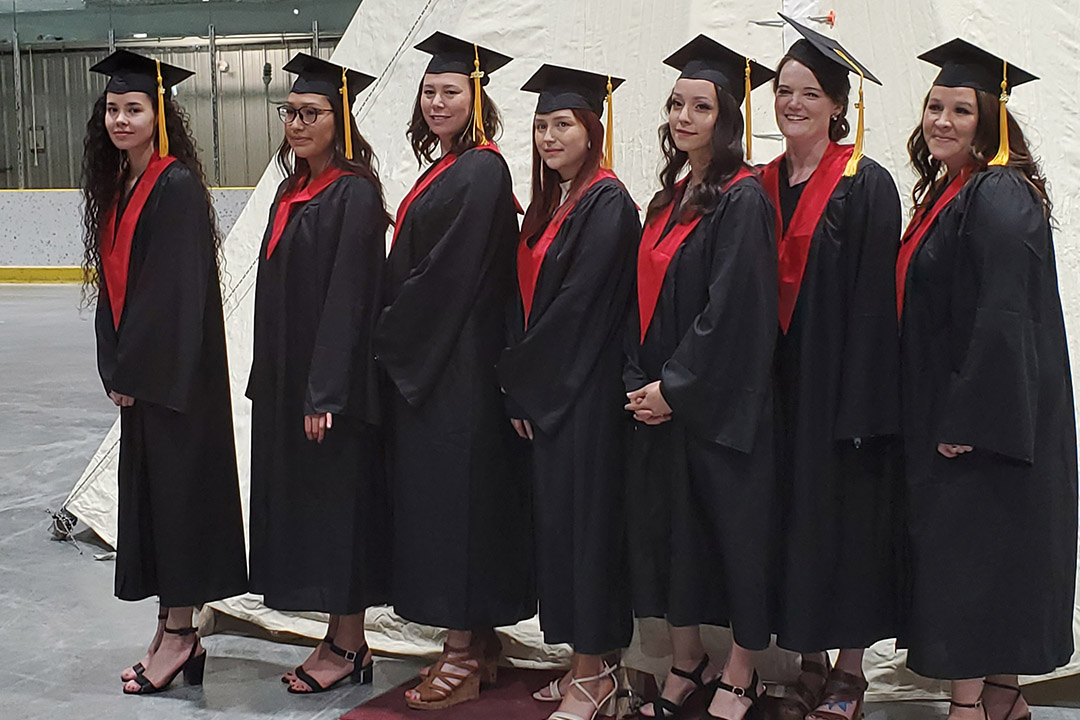
USask celebrates new northern nursing graduates
Strategic partnerships result in the education and employment of more than 65 northern nurses.
By Kylie KelsoThe University of Saskatchewan (USask) College of Nursing is committed to offering students across Saskatchewan access to high quality nursing education.
USask Nursing made changes to its undergraduate education model in 2012 and formed strategic partnerships with rural and remote educational institutions, such as Northlands College, to ensure students located in rural and remote Saskatchewan communities had access to the Bachelor of Science in Nursing (BSN) program.
Since the first students entered the BSN program at distributed sites in La Ronge and Ile-a-la-Crosse in September 2012, 61 nursing students have completed their program in northern Saskatchewan. This spring, seven additional students graduate, bringing the total number of northern nursing graduates to 68.
“Being able to complete the nursing program in La Ronge leads to more northern/Indigenous nurses in the north, as having to move south can be a major barrier for some people,” said nursing graduate Taryn McKenzie, from the village of Air Ronge. “Offering the program in La Ronge removes unnecessary barriers, like moving away from home, and gives individuals who have established their lives in the north, the ability to still attain a degree.”
Jodie Sierzycki was a paramedic in La Ronge prior to starting her education in nursing.
“I was grateful to have the nursing program offered in La Ronge, as I didn’t need to uproot my family and relocate to a larger centre,” said Sierzycki.
“I’m not sure I would have pursued nursing if it was not offered in the north. I feel this a benefit to most northern students, as a large centre, such as Saskatoon, can be a distraction for many and leaving behind a support system can be detrimental,” Sierzycki added.
When nursing students complete their degree in the north, the majority of graduates stay and practice there.
“Our northern communities need Indigenous/northern nurses, who are familiar with the culture and people,” said McKenzie.
As a result of USask Nursing’s distribution education model and Saskatchewan Health Authority (SHA) Workforce Planning and Employment Strategies, northern Saskatchewan residents are receiving nursing care from northern health-care professionals.
“Partnerships between the University of Saskatchewan and local colleges have expanded access to nursing education, and this has important benefits for smaller communities,” said Dr. Brandy Winquist (PhD), executive director, academics and learning, with SHA. “The SHA would like to congratulate all of the spring nursing graduates and we look forward to having many join our teams.”

